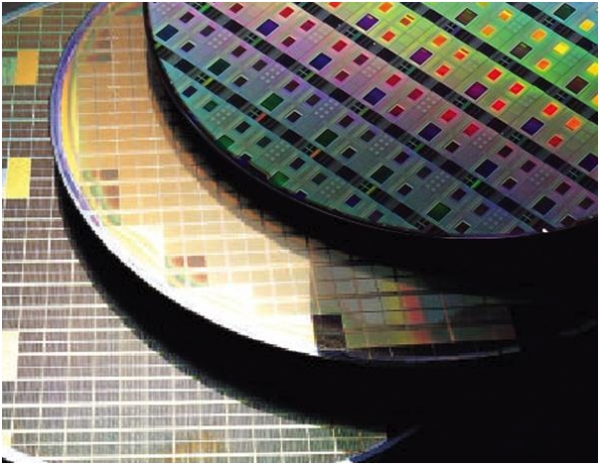
LEARNING OUTCOMES
At the completion of the course, the student will be able to- understand the significance and the perspective of the semiconductor device industry
- explain relevant physics behind e.g. metal-semiconductor interfaces, pn-junctions and metal-oxide-semiconductor structures
- apply these basic building blocks to construct different devices
- explain the most common silicon fabrication technologies and apply them in device fabrication
Credits: 5
Schedule: 08.01.2024 - 22.02.2024
Teacher in charge (valid for whole curriculum period):
Teacher in charge (applies in this implementation): Hele Savin, Ville Vähänissi
Contact information for the course (applies in this implementation):
Questions should be preferably asked in the MyCourses Discussion Forum. Teachers are available for questions during the lectures and exercise sessions. Please contact the course staff via email (firstname.lastname@aalto.fi) only in personal questions (e.g. regarding grading).
Course assistants in 2024:
- MSc. Behrad Radfar (Exercises)
- MSc. Hanchen Liu (Exercises)
- MSc. Lassi Lahtiluoma (MyCo pages and practicalities)
CEFR level (valid for whole curriculum period):
Language of instruction and studies (applies in this implementation):
Teaching language: English. Languages of study attainment: English
CONTENT, ASSESSMENT AND WORKLOAD
Content
valid for whole curriculum period:
This course provides the student essential background on semiconductor devices based on silicon technology. The course starts by covering three basic building blocks of the semiconductor devices: metal- semiconductor interface, pn-junction and metal-oxide-semiconductor structure. These building blocks are then extended to selected major silicon devices, such as, solar cells, detectors and field effect transistors. The course provides suitable background required both in semiconductor industry and in related academic research.
applies in this implementation
In 2024 course we have an invited lecture from semiconductor industry:
- Iiro Lehto/Okmetic Oy
-Evgeny Shelegeda/Ametek Inc.
Assessment Methods and Criteria
valid for whole curriculum period:
The final course grade will be based on the following five tasks:
- pre-lecture exercises
- post-lecture exercises
- calculation exercises (including group exercise)
- advanced exercises
- discussion exercise
applies in this implementation
RECOMMENDED OPTION TO COMPLETE THE COURSE:
The final course grade will be based on the following three tasks:
1) quizzes (one quizz per topic, 9 in total), weight 27%
2) calculation exercises (during the course, four sets of calculation exercises + one small group work prepared during final lecture), weight 45%
3) individual discussion exercise (at the end of the course), weight 28%
There are minimum points needed for each section to pass the course. Please see more information on grading from the "Grading" section as well as from the 1st lecture slides (course practicalities.pdf).
Points earned from the quizzes are available immediately after submitting the answers in MyCourses. The correct answers are discussed in the following recap events. The points earned from the calculation exercises will be published in MyCourses soon after each deadline.
ALTERNATIVE OPTION TO COMPLETE THE COURSE:
- Final exam: 100% of the grade will be based on the exam
In case you are interested in this option, please contact the teachers 1-2 weeks before the exam to get more instructions.
Workload
valid for whole curriculum period:
- lecture recordings: 12 h
- discussion sessions: 12 h
- pre-lecture exercises and familiarization with material before lectures: 18 h
- post-lecture exercises and familiarization with material after lectures: 18 h
- calculation exercises: contact sessions 8 h + group exercise 4 h + independent working 8 h
- advanced exercises: 8 h
- discussion exercise: live session 15 min + preparation 4 h
- overall thinking and reflecting: 42 h
Attendance to group exercise and discussion exercise is compulsory, all other tasks can be completed online (with flexible schedule).
applies in this implementation
Course structure has changed. Workloads to be updated.
DETAILS
Study Material
applies in this implementation
Chenming Calvin Hu "Modern Semiconductor Devices for Integrated Circuits", Pearson Education (2010) - chapters 3-6 (https://www.eecs.berkeley.edu/~hu/Book-Chapters-and-Lecture-Slides-download.html)
https://www.pveducation.org/ - chapters 1, 3-6, 8
Simon Sze Semiconductor Devices Physics and Technology, 3rd ed, Wiley 2013 chapter 10.1.
Lecture slides
Substitutes for Courses
valid for whole curriculum period:
Prerequisites
valid for whole curriculum period:
SDG: Sustainable Development Goals
7 Affordable and Clean Energy
9 Industry, Innovation and Infrastructure
FURTHER INFORMATION
Further Information
valid for whole curriculum period:
Teaching Language : English
Teaching Period : 2022-2023 Spring III
2023-2024 Spring III
Details on the schedule
applies in this implementation
The first lecture is an on-site event on Monday 8.1. 2024 starting at 12:15 at Kide (Otakaari 2B) in lecture hall Skłodowska-Curie - 1501.
For all other lectures, separate recordings are available for the whole duration of the course and can be watched any time. There are specific deadlines for quizzes and calculation exercises (see the corresponding MyCo pages or the link "Course practicalities" on the course front page).
Recap sessions related to the lectures and quizzes are held on-site on Wednesdays 12:15-13 (Skłodowska-Curie - 1501). Exercise sessions are held after the recap sessions by the course assistants. On Mondays at 12:15, we have an exercise help session, where students can get help to calculation exercises from the assistants.
See a more detailed schedule from the Course home page.
